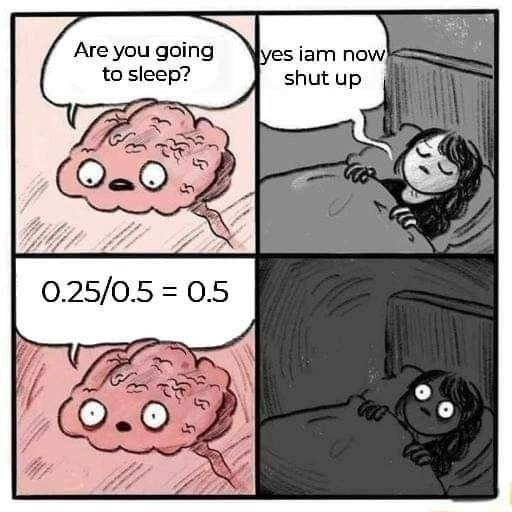this post was submitted on 14 May 2024
437 points (88.5% liked)
Memes
50730 readers
399 users here now
Rules:
- Be civil and nice.
- Try not to excessively repost, as a rule of thumb, wait at least 2 months to do it if you have to.
founded 6 years ago
MODERATORS
you are viewing a single comment's thread
view the rest of the comments
view the rest of the comments

I’m not sure I completely agree with the number-line-only approach, but I’m definitely sympathetic to it. It reinforces the idea that fractions are numbers like any other numbers, and not pieces of pizza.
I get that. I like the number line approach, and respect it, but I have also observed seasoned math coaches fumble the visual explanation of a division by fractions problem where the numerators and denominations were relatively prime. As soon as the guy had drawn the first fraction and began to say, “we’d multiply by the recipro-…”, I could tell it was going to be long problem. He just stood there, and then asked, “well, how would I go about explaining the ‘keep change flip’, if you will?” He ended the problem by saying he might just explain that the distance drawn for the first fraction needs to be repeated on the other side of the fraction to show the multiplication by the denominator of the second fraction, and then that distance could be broken into parts to demonstrate the division by the previous numerator of the second fraction.
Basically he ended the problem by saying, “let’s just reflect it! Then we can break it up.” There wasn’t really a sound justification for the reflection piece of the process, other than saying, “we need to multiply by the reciprocal of the second fraction, so we’ll just have to multiply by its denominator it had, prior to flipping it.”
That was the quietest meeting I have ever seen amongst that group of adults.